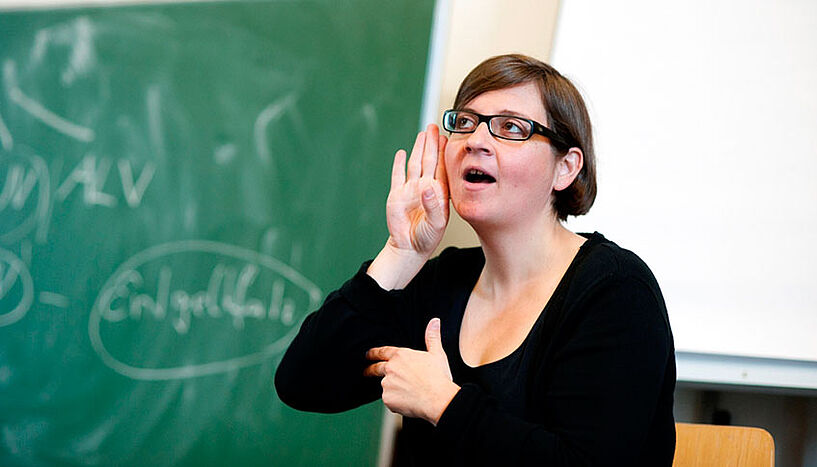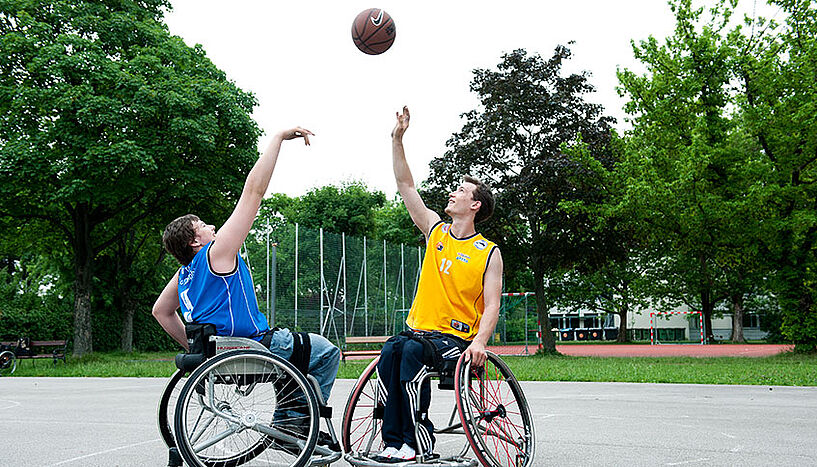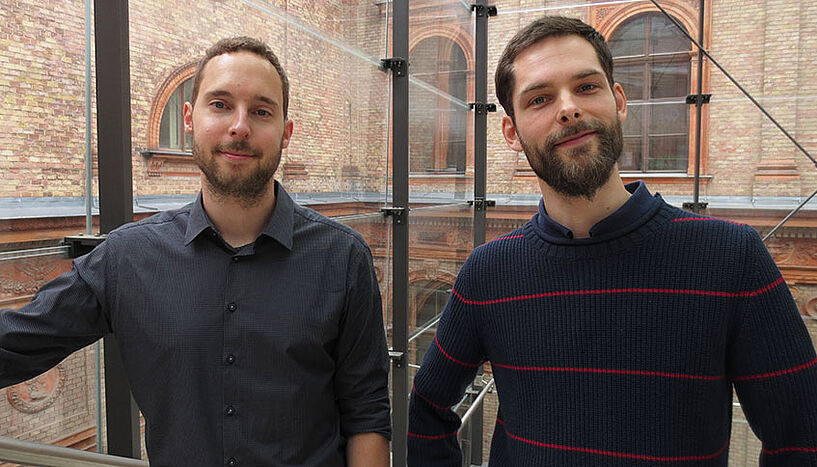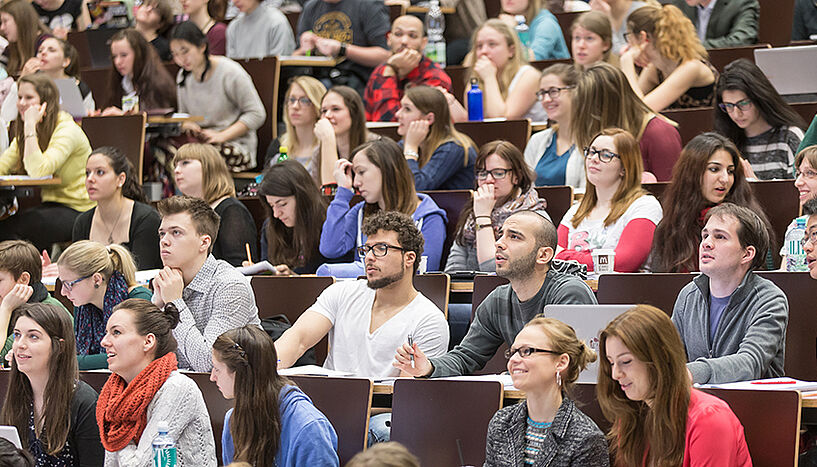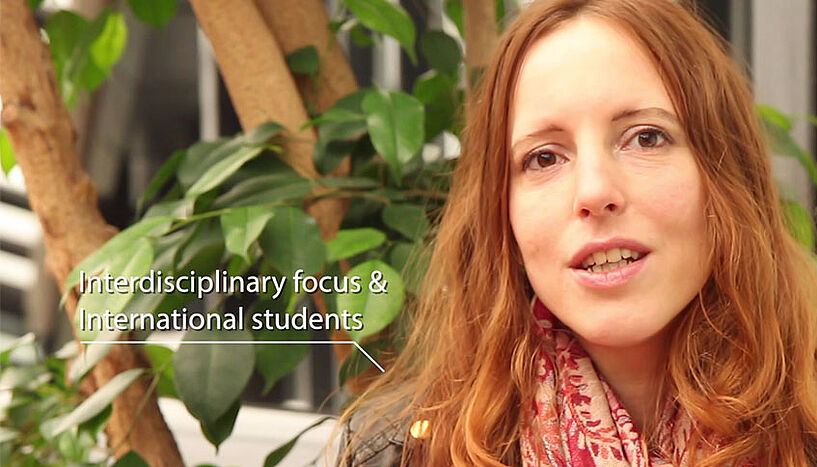Students with impairments: the Accessible Studying Team offers support!
| 28. Juni 2016University life often becomes a challenge for students with physical or mental impairments. The Accessible Studying Team advises and assists students with impairments and tries to prevent unnecessary obstacles before they can even occur.
Students with motor, mental, sensory and learning impairments have to face difficulties in various ways during their studies, e.g. when accessing a lecture hall, attending a lecture or taking an important exam. The number of people with disabilities is higher than you may think: According to the latest Student Social Survey 2015, about 12 % of university students in Austria indicated that they have some kind of impairment.
To ensure that students do not have to deal with their difficulties all alone and get equal chances to master the challenges posed by university life, the University of Vienna created the position of the disability officer some years ago. For several years now, it has been part of a team of Student Point staff members that gained in-depth knowledge in the field of accessibility and serves as the main contact point for respective questions and problems.
The Accessible Studying Team offers current and prospective students with impairments various forms of counselling services, such as personal or telephone counselling at fixed times once a week, individual appointments or e-mail counselling. You can find the exact times and further information here.
"We do not build ramps"
"We are no architects and do not build ramps", says Tim Brunöhler, current Disability Officer who also leads the Accessible Studying Team: "We serve as a communication hub and deal with requests and problems, trying to bring about constructive solutions." The main focus is on providing information and counselling. However, the team also prepares, implements and evaluates specific measures in cooperation with the Student Advisory Board 'Accessible Studying'.
"We make efforts to eliminate barriers and, at the same time, try to prevent them in the first place", adds team member Lukas Ertl. As far as constructional aspects are concerned, various improvements could be made at different university locations in cooperation with Facility and Resources Management, including the installation of additional lifts in the Main Building, designated spaces for wheelchair users in lecture halls or specially equipped computer workstations for students with impairments.
At the University of Vienna, there are two separate computer workstations for students with impaired vision or mobility: One is located in the Law Library in the Juridicum and the other one in the Education, Linguistics and Comparative Literature Library. You can find further information on the locations, use and equipment here (in German).
Different forms of impairments
"For a long time, accessibility was merely reduced to decisions for or against ramps vs. stairs, i.e. to construction measures. We have come significantly beyond that: Forms of impairments can be very different and range from acute or chronic diseases to visual, hearing or motor impairments as well as psychological phenomena such as depressions or phobias", explains Tim Brunöhler.
Brunöhler and Ertl try to respond to the individual needs of each person, no matter what problems an individual person might face. It is up to the students to decide whether they want to contact the lecturers right away in order to communicate their individual needs and try to find a common solution.
"If it does not really work out that way, the students can contact us at any time. We provide students with a form that does not yet indicate a diagnosis, which they can subsequently use to have any relevant impairments confirmed by a medical specialist, and we issue letters of recommendation, e.g. recommending alternative modes of assessment", explains Lukas Ertl.

"The right to alternative modes of assessment as stipulated in the Universities Act leaves room for alternative solutions for those students who are not able to take an exam the usual way. If students have visual or motor impairments, they can, for instance, take an oral exam instead of a written one, while students with psychological symptoms such as anxiety can take the exam in a separate room", explains Lukas Ertl. (Copyright: Alba Estévez G./ Flickr)
Continuous learning process
Both of the two Student Point staff members have experienced and achieved a lot over the past years when it comes to supporting students. "Very often, we have managed to make university life a lot easier for students. We are always happy to receive positive feedback", say Tim Brunöhler and Lukas Ertl, who also regularly share their experiences with experts from other universities and higher education institutions via the umbrella organisation Uniability.
"When it comes to the issue of accessibility, you never stop learning, it is a continuous learning process. As a result of the technological progress, we might find completely new possibilities to eliminate barriers or, even better, prevent them in the first place", say the two team members in conclusion.

